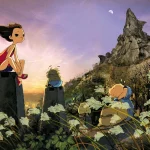The legendary Indian epic, ‘Mahabharat’, first brought to life in ancient times and popularized through numerous adaptations like the iconic 1988 Indian television series, reveals the complexity of human nature.
Among its multifaceted characters, Duryodhana stands out as a cautionary tale of envy and arrogance. As the crown prince of the Kauravas, his jealousy drives the epic’s conflicts, offering timeless lessons on what to avoid.
His infamous words, “I shall never surrender to the Pandavas!” encapsulate his envious nature and serve as a reminder of the destructive power of jealousy.
1. Duryodhana’s Relentless Jealousy Toward the Pandavas
One of Duryodhana’s defining characteristics is his deep envy for the Pandavas, which fuels his relentless pursuit of their downfall. His jealousy blinds him to his own potential and worth.
2. Obsession With Power That Clouds His Judgment
Duryodhana’s obsession with power leads him to take reckless actions, damaging not only himself but also those loyal to him. This trait warns us of the dangers of unbridled ambition.
3. Manipulation of Allies for Personal Gains
Duryodhana exploits his allies, like Karna, to fulfill his selfish agenda. His manipulative nature reminds us to be wary of toxic relationships.
4. Refusal to Acknowledge His Faults
Despite facing constant setbacks, Duryodhana refuses to accept his flaws. This lack of self-awareness highlights the importance of humility and introspection.
5. Disrespect for Elders and Advisors
Duryodhana often dismisses the wisdom of figures like Bhishma and Vidura. His disrespect for guidance serves as a stark warning against arrogance.
6. Greedy Pursuit of Hastinapur’s Throne
Duryodhana’s greed for power drives his unethical actions, from sabotaging Yudhishthira’s claim to the throne to scheming during the dice game. His insatiable greed teaches us to value fairness and justice.
7. Unwillingness to Forgive and Move Forward
Duryodhana clings to grudges and refuses to reconcile, even when it could save lives. His vindictive nature shows the cost of holding onto resentment.
8. Toxic Rivalry That Leads to His Downfall
In the end, Duryodhana’s rivalry with the Pandavas is his undoing. This unhealthy competition reminds us of the dangers of envy and the importance of striving for harmony.
Duryodhana’s story in ‘Mahabharat’ is a cautionary tale that reminds us of the consequences of envy and arrogance. By leaving behind traits like jealousy and manipulation, we can strive to build a life centered around positivity and growth. As Vidura wisely advises in the epic, “Envy consumes the soul, but contentment nourishes it.”








